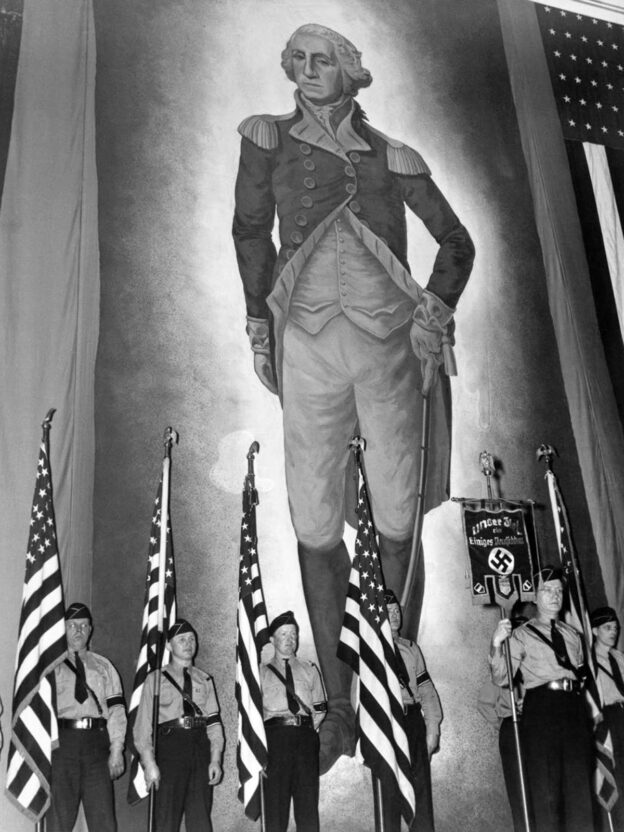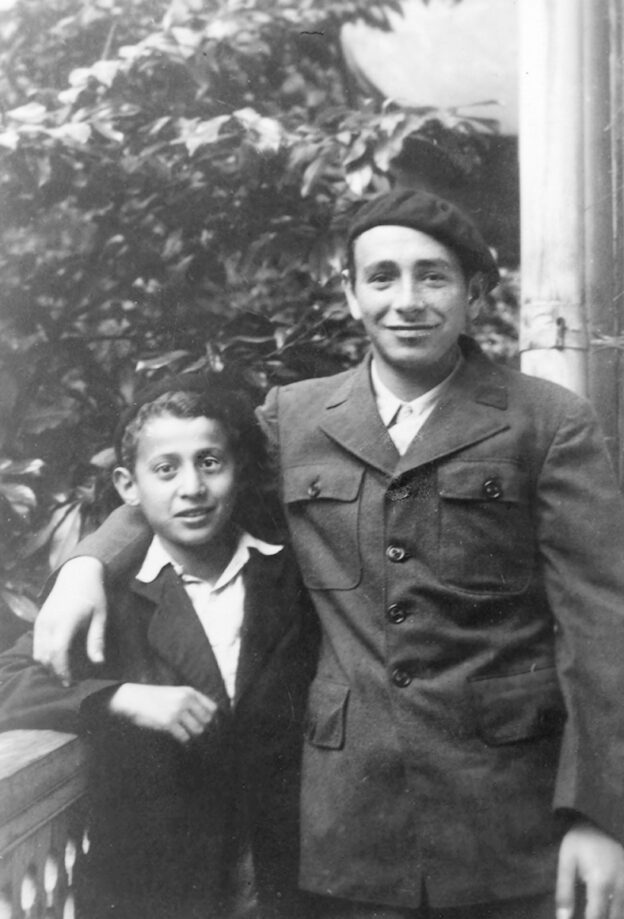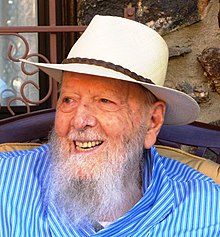A piece I wrote about the misuse of the American flag was published by NBC-THINK on Flag Day, earlier this week. It can be read here.


A piece I wrote about the misuse of the American flag was published by NBC-THINK on Flag Day, earlier this week. It can be read here.

I have defended Congresswoman Alexandria Ocasio-Cortez on a number of occasions in several public venues. But I was chagrined by her reaction to the recent Hamas/Israel war, and express why here.

Few contrasts are as striking as the one between Moshe, the “most humble of all men,” who had to be drafted by Hashem to lead the Jewish people, and Korach, who was consumed with a desire for a leadership role.
And, like deceitful populists over ensuing millennia, Korach insisted that he was merely standing up for the masses, advocating for their democratic rights. Who needs a mezuzah (i.e. a leader) if the house is filled with holy books (i.e. the magnificent masses)?
Many contemporary leaders, some more shamelessly than others, advanced their aspirations in Korach-fashion, lusting for power while claiming to be championing the people. (A rare exception was Dwight Eisenhower, the only American president who had to be drafted to run for that office.)
In the authentic Jewish religious world, true leaders are always drafted — that is to say, “elected” not by campaigns and misleading claims but rather by unsought public acclaim. I have been privileged to have spent time in the vicinities of several, and was deeply affected by their selflessness and modesty. My rebbe, Rav Yaakov Weinberg, was one; see https://www.rabbiavishafran.com/mr-to-us/. His yahrtzeit is Shiva Asar B’Tamuz.
And, just like Moshe was accused of sins he didn’t commit, so are Gedolim today sometimes attacked for imagined misdeeds. And not only by people lacking any relationship to Torah, but even some who are meticulously observant.
Ohn ben Peles, the Midrash recounts, a confederate of Korach’s, was saved from the latter’s fate by Mrs. Ohn. After plying her husband with enough wine to put him to sleep, she sat outside their tent and uncovered her hair. So when Korach’s supporters came to fetch her husband and saw the immodest woman, religious folks that they were, they turned on their righteous heels and left.
Even religious people can fall victim to would-be-dictators’ lies.
© 2021 Rabbi Avi Shafran


Pesach Sheni is a special day in my family, because in 1945, on that day of the Jewish calendar, my father-in-law, who passed away earlier this year, was liberated from Dachau by American soldiers.
You can read about his last days in the concentration camp, and about his family’s marking of that day each year, here.
(Photo is of my father-in-law and one of his orphan charges in France.)

A piece I wrote for Forward about my late father-in-law’s friendship with the celebrated novelist Herman Wouk — whose second yahrtzeit was last Shabbos — can be read here.

A rejoinder to the posting below, “The Cat is a Hat,” was sent to me by our son Menachem Tzvi, who lives with his wife and three children in Lakewood, NJ and studies full-time in a kollel there (but who apparently uses his very limited “down time” to write not only perceptive divrei Torah but occasional doggerel).
While your poem was truly
a lesson in grammar,
It gave me a jolt-
made me stutter and stammer.
I am so shaken up-
yes it’s true, I’m afraid
The words that I read
left me shocked and dismayed.
The foremost offense
is the honor you gave
To a man who committed
injustice so grave.
He penned and he drew
racist words and depictions
Just to sow and to spread
xenophobic afflictions!
And then, as I read
my surprise was fantastic
I was simply befuddled
My flabber was gastic!
Humans, you said
deserve phrases and words
that could not apply
to apes, mammals and birds!
And if that’s not enough
you implied with great ease
that he’s are for men
and that women are she’s!
And on that note I add
that I quite was amused
with how all of your rules
leave us dumb and confused!
For what shall we say
to potatoes with limbs-
especially now
they are not hers or hims?
Should we use the word “who”
Or perhaps just a “that”?
And what, who or whom
Is the cat in the hat?
But alas, now I fear
that none of this matters
with our basic core values
thus shredded, in tatters.

In belated honor of Theodore Geisel’s birthday yesterday, I offer you a piece I wrote, under a pseudonym, for Ami Magazine years ago, about a grammatical gripe, but in homage to the good “Doctor”:
It’s too much overheard
And too much to endure.
Many words are misused
And misplaced; that’s for sure.
But there are words so simple, so common, so plain
That confusing them causes us terrible pain.
They grate on the ear, they bother the head,
They set teeth on edge, and up make us fed.
A THING is a THING, and a person is not.
He’s a man, that is, or a woman or tot.
A thing is a thing, like a cat (or a hat)
And the right word to use for such things is, well, “that.”
So it’s: “The hat that was sat upon ran out of luck.”
Or, likewise, the “cat that challenged a truck.”
You would never refer to a hat as a “who.”
Or a cat for that matter, or a cow… or a moo.
“Who” is reserved for beings quite human,
Not for feelings or furniture, cabbage or cumin.
Even elephantine Horton who heard a clear who
Does not himself merit one, as do I and do you.
For an animal or object, “who” is atrocious.
“Who” is for you, reader, adult or precocious.
So please, no more “the person that came to my house”
Or “the lady that screamed when she spotted a mouse.”
No more “neighbors we hear that are going on vacation”
Or “children that come from Haiti are Haitian.”
No more “Zaidy, that is with computers a novice.”
Or “Zeldy that’s coming to visit on Shabbos”
It’s WHO in such cases, since a person’s a person
Our use of English must improve and not worsen.
If we aim not to seem entirely dumb.
It’s “Who” for those of opposable thumb
Excepting simians, of course, that’s quite certain;
Monkeys get “that,” like a lampshade or curtain.
But we humans are different; get this down pat!
We take a “WHO”—And that is just that.

My Ami Magazine column last week dealt with several lawsuits that have been in the news of late. It can be read here.

It takes an impressive degree of repugnancy for a Republican lawmaker to evoke condemnation from Senate Minority Leader Mitch McConnell. Enter newly elected Representative Marjorie Taylor Greene of Georgia.
She earned that dishonor by doing things like suggesting that no planes hit the Pentagon on 9/11, claiming that horrific school shootings were staged “false flag” operations and asserting that the Clintons are mafioso-style murderers. She also posted the first “like” on a social media assertion that “Mossad was on the ground on in [sic] Dallas on 11/22/1963!” (Lee Harvey Oswald, a member of the tribe? Who knew?)
Not to mention her sharing of a video asserting that “Zionist supremacists” are conspiring to flood Europe with migrants in order to replace its white population; and her wistful musing that “a bullet to the head [of House Speaker Nancy Pelosi] would be quicker [than removing her through democratic means].”
And her suggestion that California’s deadliest wildfire was caused by “lasers or blue beams of light” shot down from outer space, likely with the involvement of operatives of the “Rothschild Inc, international investment banking firm.”
You get the idea.
Yet, despite Mr. McConnell’s characterization of Ms. Greene’s “loony lies and conspiracy theories” as a “cancer for the Republican Party and our country,” the crackbrained Congresswoman would only tiptoe back her 9/11 and school shooting charges, stonewalling about all else.
Her sole defense seems to consist of the praise she’s received from former President Trump (like his congratulatory tweet after her election win: “Marjorie is strong on everything and never gives up – a real WINNER!”). Well, yes, definitely, a real winner.
Last Thursday, the House voted 230-199 (11 Republican members voted with the Democrats)
to remove Ms. Greene from her committee assignments (Education [!] and Budget). The next day, she finally uttered the word “sorry,” but only for “all those things that are wrong and offensive,” without further specification.
But her outrageous imaginings, with the “Rothschild Inc.” lasers (Lazers?) from outer space, “Mossad” and “Zionist supremacists” references (and others about George Soros, who, like “Rothschild,” is, among neo-Nazis and other moral misfits, a stand-in for Jews), are a reminder of how frequently conspiracy theories point to… you know who.
From the ancient Egyptians fearing an Israelite overtaking of their land to the less-ancient Greek orator Apion, who explained how Jews engage in human sacrifice and cannibalism, to the Christian blood libels of the Middle Ages, to the Protocols of the Elders of Zion, which “exposed” the Jewish plot to manipulate governments and dominate the world, to the Nazi canards about Jews, to those popular in some Muslim circles today, Jews have been prime objects of an odious assortment of frightful fantasies.
According to Mark Potok of the Southern Poverty Law Center, “Conspiracy theories are the way weak minds deal with complex situations.” Granted. And by their very nature, conspiracy theories need conspirators. But why the Jews?
Political scientist and historian Dan Cassino says Jews have so often been blamed for all manner of misfortune because “There is a perception of Jews as the Other — a part of society, but still somehow foreign. Couple that with resentment over Jewish success in certain areas of society, and they’ll be blamed for things that are otherwise just ineffable.”
But there are other ethnic and racial and religious groups that also stand apart within larger societies and, while some are disliked and even attacked by bigots, none are characterized as some sort of diabolical cohort bent on destroying all that is good and righteous. Blacks may be hated and Koreans envied by parts of America’s underbelly. But there has never been a “Protocols of the Elders” of Nairobi or Seoul.
No, the vilification suffered by Jews is sui generis, one of a kind, unexplainable by any normative analytical construct. It is rooted in something residing in a realm beyond the reach of social science.
“Rabi Shimon bar Yochai said: ‘It is a halachah well-known that Esav hates Yaakov” (Sifri, Beha’aloscha 69).
Rav Menachem Ziemba, Hy”d, reportedly addressed the odd use of “halachah” in that statement by noting that Rabi Shimon generally perceives ta’ama di’kra, the reason or logic behind things the Torah says. Here, though, said Rav Ziemba, the tanna contends that when it comes to hatred for Jews, there is no logical explanation. It is simply a halachah, a truth, as inexplicable as it is inescapable.
There will, in other words, always be Esavs in the world, and they will always seek, even in the most deranged ways, to vilify the progeny of Yaakov.
© 2021 Ami Magazine